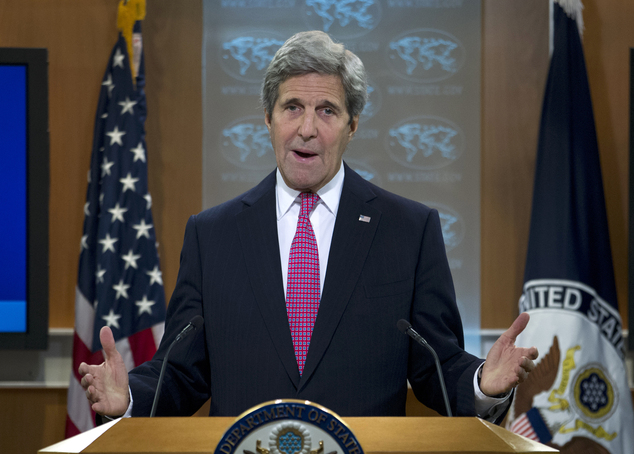
(TibetanReview.net, Apr15, 2016) – The human rights situation in China continued to worsen during 2015, the third year of President Xi Jinping’s rule, and was particularly harsh in Xinjiang and Tibet, said the US State Department in its latest annual global human rights report Apr 13. The report referred to the “severe repression of Tibet’s unique religious, cultural and linguistic heritage” and the intensified militarization of the Tibetan Plateau.
While restating the US policy that recognizes that the Tibet Autonomous Region (TAR) and Tibetan autonomous prefectures (TAPs) and counties in other provinces as part of China, the report said, “the government’s respect for, and protection of, human rights in the TAR and other Tibetan areas remained poor.”
“Under the professed objectives of controlling border areas, maintaining social stability, and combating separatism, the government engaged in the severe repression of Tibet’s unique religious, cultural, and linguistic heritage.”
The report said seven Tibetans had self-immolated during 2015, down from the 83 self-immolation protests reported in 2012. It quoted media reports as saying the decline was “due to tightened security by authorities and the collective punishment of self‑immolators’ associates.”
The annual Human Rights Report covered the situation in Tibet in a separate section as mandated by Congress in 2002.
Human rights in Tibet will be on the agenda in Washington this week at a Congressional-Executive Commission on China hearing on ‘China’s Pervasive Use of Torture’, with Tibetan monk and former political prisoner Golog Jigme testifying, said Washington-based International Campaign for Tibet Apr 13.
* * *
On Xinjiang, the report said that a number of violent incidents in the region had resulted in multiple deaths. “Official accounts of these events generally blamed ‘terrorists,’ ‘separatists,’ and ‘religious extremists’ for what was portrayed as violent terrorist attacks on community members and security personnel.” However, “human rights organizations asserted that security forces often shot at groups of Uyghurs in their homes or during worship.”
* * *
On China as a whole, the report said the country’s already poor human rights record worsened with a sweeping crackdown on lawyers, activists and bloggers in 2015, a year that saw Beijing extend abusive and unlawful enforcement practices across borders to Hong Kong and Thailand. It added that the year saw particularly harsh policies and curbs on movement and communication in the Xinjiang Uyghur Autonomous Region (XUAR) and Tibetan areas – regions where Beijing rules with a heavy hand to stamp out anything it perceives as separatism.
The report said the push against the legal profession, whose growing prominence was not long ago seen as a rare bright spot in China’s rights picture, saw “hundreds of lawyers and law associates interrogated, investigated, and in many cases detained in secret locations for months without charges or access to attorneys or family members”.
Referring to the prevalence of official impunity, the report said, “Authorities resorted to extralegal measures, such as enforced disappearance and strict house arrest, including house arrest of family members, to prevent public expression of critical opinions.”
The annual State Department reports, which are summarily rejected by Beijing, normally also recognize positive developments, but good news appeared to be relatively scarce in 2015, noted Radio Free Asia (Washington) Apr 13.
The report said that despite Xi’s signature campaign against it, “corruption remained rampant, and many cases of corruption involved areas heavily regulated by the government, such as land-usage rights, real estate, mining, and infrastructure development, which were susceptible to fraud, bribery, and kickbacks.”


